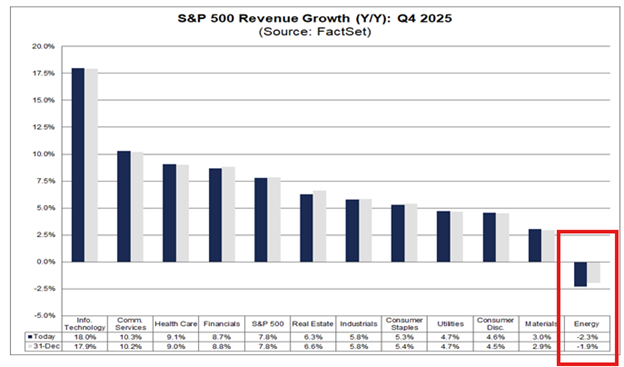The U.K. election is over. While it was in full swing, I happened to find myself watching an interview of party leaders from the 1959 election, and it put so much of the current political landscape into perspective. The video, which you can watch here, takes you back to a time, post war, where there was something Brits called “the post-war consensus.” After the Second World War ended, both major parties came to a philosophical harmony where certain policies were seen as necessities for the role of government in a free society. Certain policy areas became untouchable, and as a result, the growth of government increased at a pace not seen before. Britons should make no mistake: the Conservative Party and the Labour Party have been aligned for much longer than commonly thought.
Conservatives and Labour mostly agreed on public ownership, what Brits call nationalization. In the ’50s, the Conservatives privatized steel, but apart from that, their policy was focused on preventing further nationalization. The Conservative Party manifesto of 1959 stated, “We do not propose to denationalise the railways or the coal mines, but to make them more efficient and accountable to the public.” Harold Macmillan, in the video I linked above, when asked about nationalization, states: “It would be quite foolish to denationalise anymore ... we should make the best job of the nationalised industries.”
The Conservative Party, the party that rhetorically expounds the virtues of the market, admits in its official manifesto that some areas are beyond the scope of the market. This is eerily familiar as the Conservative Party of the modern age acts in a similar fashion. Rishi Sunak, now a former prime minister, has on multiple occasions praised the “genius of the free market” and called it the “greatest agent of collective human progress ever created.” This praise comes with a backdrop of specific railway networks being seized and taken into public ownership by his own government while the Labour Party is pledging to nationalize the railways within five years. Philosophically, what is separating these political parties?
One could make the argument that they did not nationalize much during the Labour government from 1997-2010, but that is because their interventionism replaced the need for nationalization. Instead, it was some form of state intervention in private business that manipulated the operations of that sector; are people going to make the argument that the government did not effectively nationalize these industries? That would be an absurd argument. One cannot argue that through tools like regulation and subsidies that the Labour government was not picking winners and losers, which is effectively the role nationalization played. The tools are different but the outcome remains the same.
Nationalization, with a slight divergence during the Margaret Thatcher years, has always been something that the two major parties mostly agreed on. Certain industries that are too important to the public are ring-fenced from any talk of privatization so they can be managed by the state for the benefit of the public. Our elected politicians are meant to be erudite individuals, but if they were, they would have noticed that constant nationalization keeps creating terrible outcomes. It is not difficult to analyze. The only consistently nationalized part of the railway industry is the infrastructure — e.g., rail tracks, rail signals — yet there has been no movement to acknowledge that government management of this part of the rail industry has been a consistent failure for decades. Network Rail, an arm of the state, manages this infrastructure, and its entire history is one of shambolic performance with a notorious inability to meet its own targets.
One should not err in criticism of nationalization by merely analyzing its modern form. Much of what the British political class claims are publicly beneficial industries, from the end of the Second World War till the late ’70s, were nationalized. These publicly important industries included dockyards, railways, airways and many others which, by the late ’70s, were entirely uncompetitive, operating at consistent losses, and in dire need of subsidies to stay afloat. The British Steel Corporation, one of the many bloated and ill-managed producers, reported an $820 million loss in 1978. The government repeatedly saved the National Coal Board from collapsing through grants and subsidies of up to £100 million. The British people have too easily forgotten just how terribly government manages what should be private businesses. Time does not wash away institutional incompetence, but it seems to push it into the depths of our memories.
The video I linked revealed something more than just consistent similarities on policy. Curiously, even in the 1950s, Harold Macmillan mentioned some anxiety about automation in relation to negotiations with the trade unions, stating, “Particularly, automation. How the new machines can best be used to everybody’s benefit and all of the kind of things that are developing out of the technological advances.” The analysts of the modern day forget that the fear of automation is not a new development; it has been around for decades. Political actors assume that technological advances that take away the necessity for human labor in certain areas is something we need to fight because people will lose jobs and we will witness entire areas left behind as automation destroys the human element of industry.
Firstly, it is revealing that politicians will freely make this argument when their own policies of keeping unproductive industries afloat, until they could do nothing but collapse, has led to entire areas of northern England being hollowed out. A glaring lesson should be learned for both nationalization advocates and automation fearmongers. When you effectively chain the free market so it has no flexibility to allow for the slow development of new industries in these areas where the old industries are fizzling out, people will create the very thing they are attempting to prevent: hollowed out, undeveloped areas.
Secondly, automation fears are entirely overblown. Automation fearmongers would have opposed the spectacular innovation of the Bessemer converter. The Bessemer process was the first that made mass steel production inexpensive, lowering the cost of steel production and thereby allowing for an increase in output. This innovation will have no doubt taken away the necessity for highly skilled jobs in the production of steel since relatively unskilled workers could operate the converter, but it is obvious that in the long run it created an industry that employed thousands of people and distributed huge amounts of wealth to a magnificent volume of people. This would have been impossible if the innovation never happened. Politicians should not just look at what is directly observable. They must account for what they cannot see at first glance, but unfortunately, the political system is geared toward the kind of short-term thinking that causes tunnel vision.
It was incredibly intriguing to look back at a campaign conducted almost six decades ago and witness the same old arguments that libertarians battle today. The political system, focused as it is on the short term, influences our politicians’ actions so much that there can only ever be short-term deviations from the norm or, as is the case with nationalization, politicians are forced to find a different method for achieving their political goals. I fear that the political system will keep cycling through generations of politicians who may sound rhetorically different than their predecessors, but the outcomes do not change. In the U.K., there are great indicators that a large segment of the population has an intuition that something is wrong with the system, but they are lacking a voice that can express the true reasons behind the system’s bankruptcy. Growing disillusionment only improves the outlook for liberty as people seek moral alternatives to the broken establishment.
Full story here Are you the author? Previous post See more for Next postTags: Featured,newsletter

























